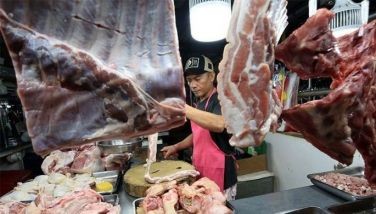Financial system shows resilience in H1, says BSP
MANILA, Philippines — The Philippine financial system manifested sustained resilience in the first half amid the prolonged and evolving path of the pandemic, according to the Bangko Sentral ng Pilipinas.
BSP Governor Benjamin Diokno said banks remained a strong economic pillar as the sector continued to provide domestic liquidity and credit access to businesses and households even during the health crisis.
“In the first semester of 2021, the banking system displayed continued growth in assets and deposits and posted sufficient capital and liquidity buffers. This enabled the banking system to support the country’s financing needs,” Diokno said.
Based on the Report on the Philippine Financial System for the First Semester of 2021, total assets of the banking system grew by 6.4 percent to P19.81 trillion as of end-June.
“The asset expansion was primarily channeled to lending and investment activities while funding was mainly sourced from deposits, followed by capital and bonds,” the BSP said.
During the review period, credit activities remained muted as the emergence of the new Delta variant and the risk of infection continued to affect prospects for economic recovery. Gross loans declined by 0.4 percent as of end-June.
The BSP said that lending activity is projected to improve in the coming months in view of the accelerated vaccination program and implementation of enhanced safety protocols of the government.
Aside from accommodative monetary policies, the BSP continued to implement key policy reforms and relief measures to support the recovery of key vulnerable sectors, including micro, small, and medium enterprises (MSMEs).
As to profitability, the banks’ performance rebounded as net profit of the system went up by almost 43 percent P122.7 billion. Apart from the improvement in cost of funding and higher income from fees and commissions, banks’ early recognition of their loan-loss provisions in 2020 enabled the banking system to temper the impact of this crisis on its earnings.
Meanwhile, the central bank said the trust industry recorded double-digit 18.4 percent growth in assets to P4.82 trillion and a 33.5 percent jump in net income amid the pandemic.
The BSP said the long history of corporate governance and risk management reforms in the financial sector, complemented by the prompt implementation of relief measures, enabled banks and the financial system to endure heightened risks arising from muted credit activities, weak borrowers’ cash flow, and disruption in operations, among others.
“Nonetheless, this crisis has presented unique opportunities for financial institutions to leverage on digital transformation, which has benefited households and businesses in terms of convenience and availability of cashless transactions, particularly in the payments space,” it said.
The promotion of cashless transactions and contactless payments is an integral part of the BSP’s financial inclusion agenda. It is also an imperative under the new economy since it allows consumers and enterprises to undertake safer banking and financial transactions amid the health crisis.
“The acceleration of digital transformation reinforced banks’ continued delivery of financial products and services during the pandemic,” Diokno said.
Under its Digital Payments Transformation Roadmap, the central bank aims to convert 50 percent of total retail transactions to electronic channels and increase the number of Filipino adults with bank accounts to 70 percent by 2023.
- Latest
- Trending































